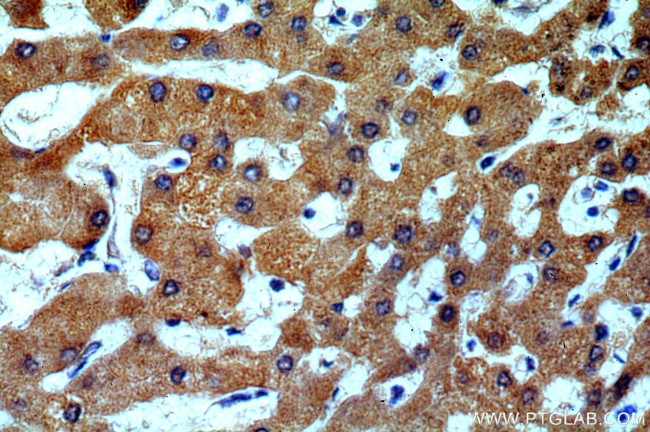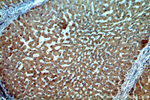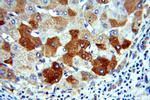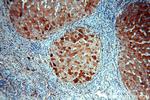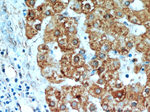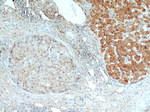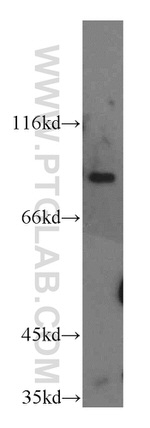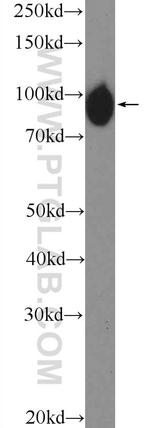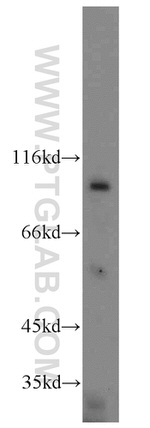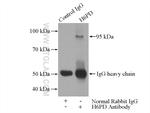Search Thermo Fisher Scientific
Product Details
15255-1-AP
Species Reactivity
Published species
Host/Isotype
Class
Type
Immunogen
Conjugate
Form
Concentration
Purification
Storage buffer
Contains
Storage conditions
Shipping conditions
Product Specific Information
This antibody is specific to H6PD.
Immunogen sequence: LSDYYAYSP VQERDAHSVL LSHIFHGRKN FFITTENLLA SWNFWTPLLE SLAHKAPRLY PGGAENGRLL DFEFSSGRLF FSQQQPEQLV PGPGPAPMPS DFQVLRAKYR ESPLVSAWSE ELISKLANDI EATAVRAVRR FGQFHLALSG GSSPVALFQQ LATAHYGFPW AHTHLWLVDE RCVPLSDPES NFQGLQAHLL QHVRIPYYNI HPMPVHLQQR LCAEEDQGAQ IYAREISALV ANSSFDLVLL GMGADGHTAS LFPQSPTGLD GEQLVVLTTS PSQPHRRMSL SLPLINRAKK VAVLVMGRMK REITTLVSRV GHEPKKWPIS GVLPHSGQLV WYMDYDAFLG (443-791 aa encoded by BC081559)
Target Information
The cystatin superfamily encompasses proteins that contain multiple cystatin-like sequences. Some of the members are active cysteine protease inhibitors, while others have lost or perhaps never acquired this inhibitory activity. There are three inhibitory families in the superfamily, including the type 1 cystatins (stefins), type 2 cystatins and the kininogens. The type 2 cystatin proteins are a class of cysteine proteinase inhibitors found in a variety of human fluids and secretions. The cystatin locus on chromosome 20 contains the majority of the type 2 cystatin genes and pseudogenes. This gene is located in the cystatin locus and encodes a type 2 salivary cysteine peptidase inhibitor. The protein is an S-type cystatin, based on its high level of expression in saliva, tears and seminal plasma. The specific role in these fluids is unclear but antibacterial and antiviral activity is present, consistent with a protective function.
For Research Use Only. Not for use in diagnostic procedures. Not for resale without express authorization.
Bioinformatics
Protein Aliases: 6-phosphogluconolactonase; G6PD, H form; GDH/6PGL endoplasmic bifunctional protein; glucose 1- dehydrogenase; glucose 1-dehydrogenase; glucose dehydrogenase; glucose dehyrogenase; glucose-6-phosphate dehydrogenase 1; glucose-6-phosphate dehydrogenase, salivary; hexose-6-phosphate dehydrogenase (glucose 1-dehydrogenase)
Gene Aliases: AI785303; CORTRD1; G6pd1; G6PDH; GDH; Gpd-1; Gpd1; H6PD; H6pdh
UniProt ID: (Human) O95479, (Mouse) Q8CFX1
Entrez Gene ID: (Human) 9563, (Mouse) 100198, (Rat) 298655

Performance Guarantee
If an Invitrogen™ antibody doesn't perform as described on our website or datasheet,we'll replace the product at no cost to you, or provide you with a credit for a future purchase.*
Learn more
We're here to help
Get expert recommendations for common problems or connect directly with an on staff expert for technical assistance related to applications, equipment and general product use.
Contact tech support
